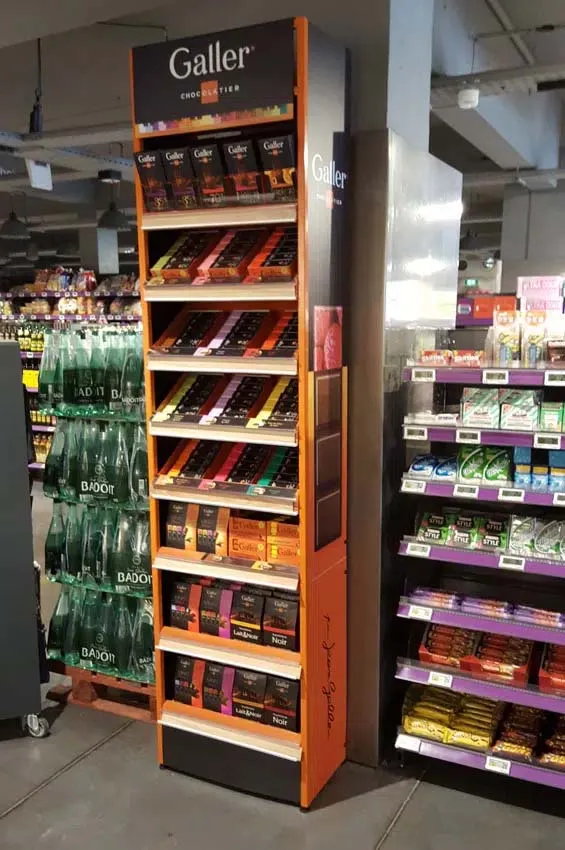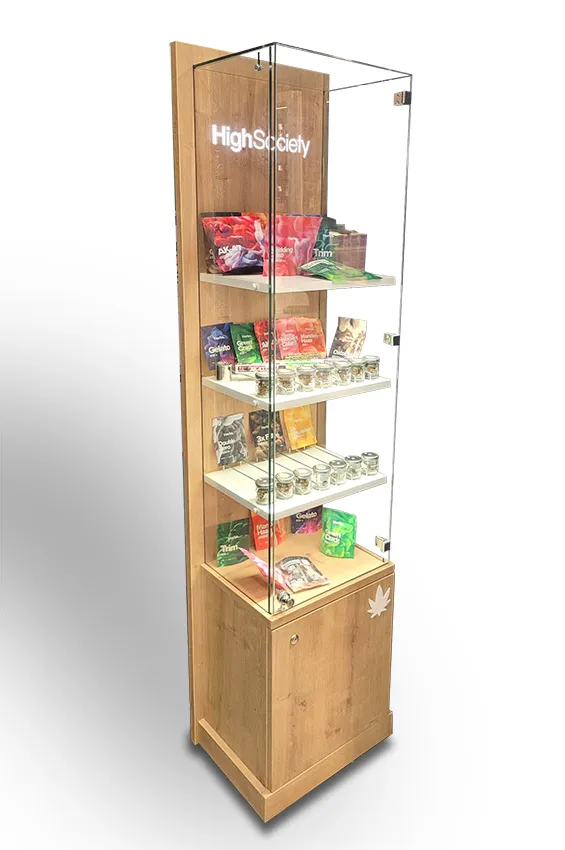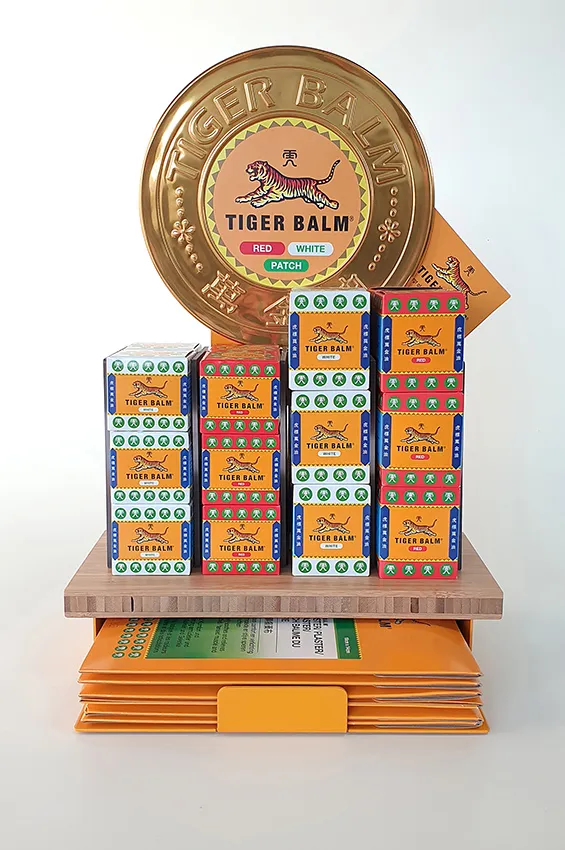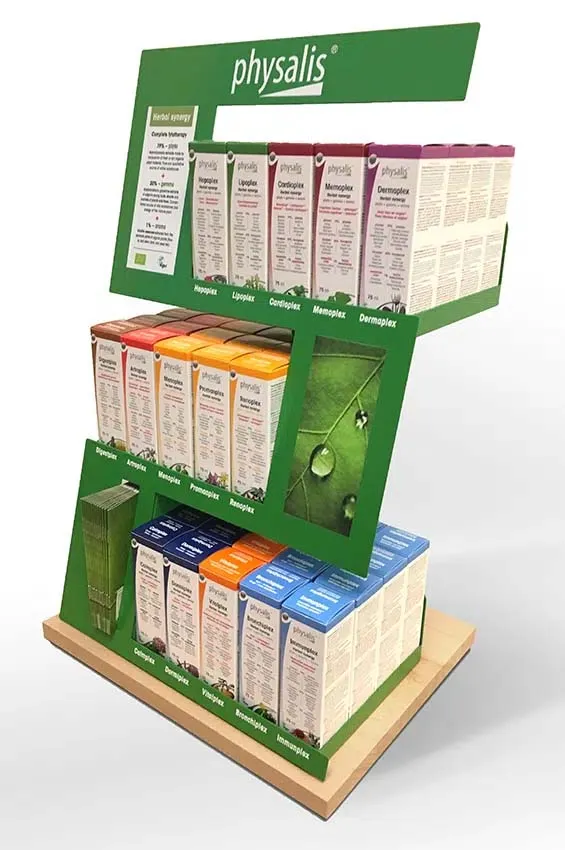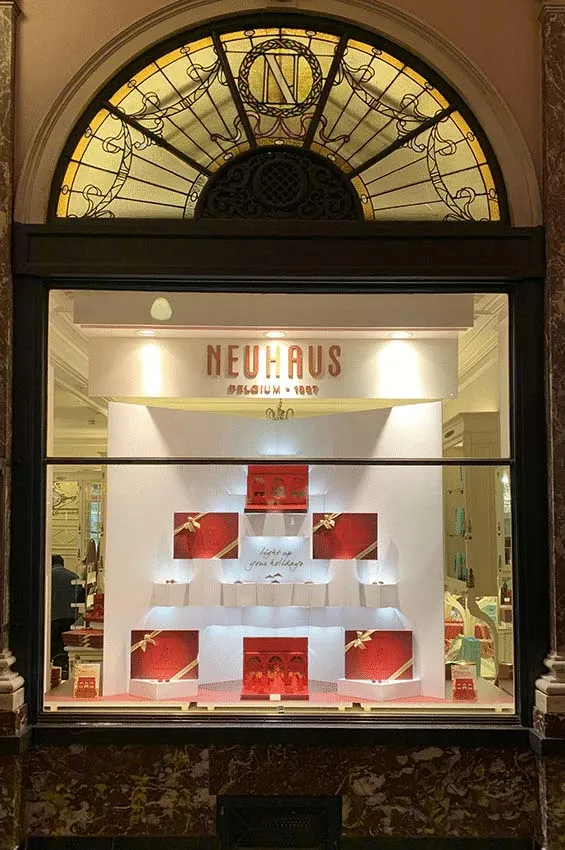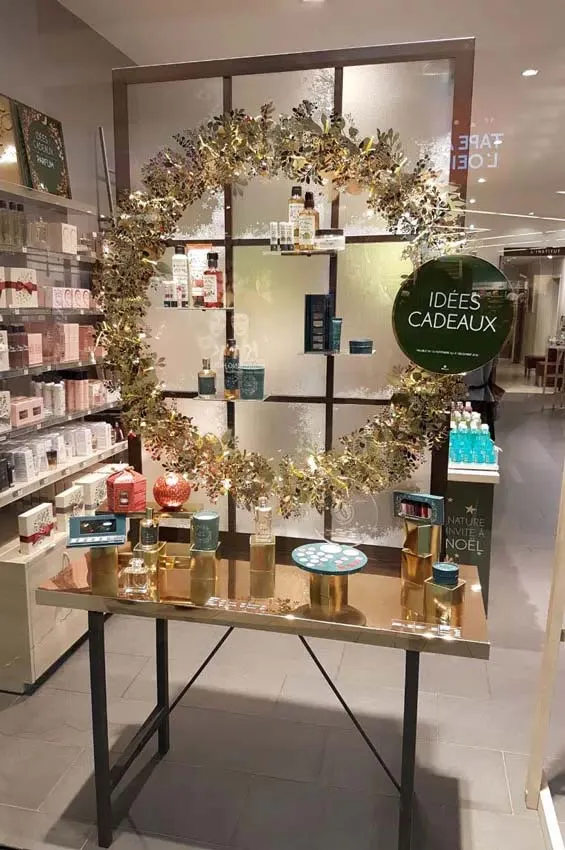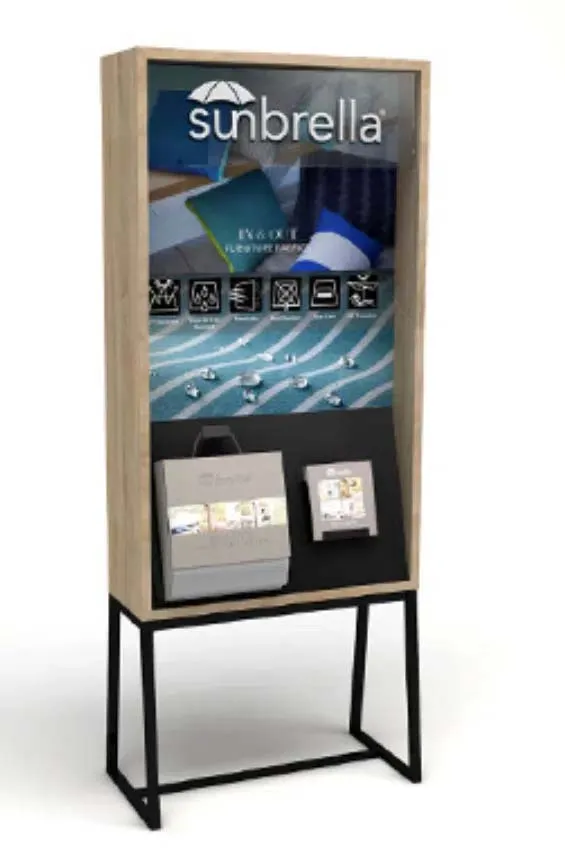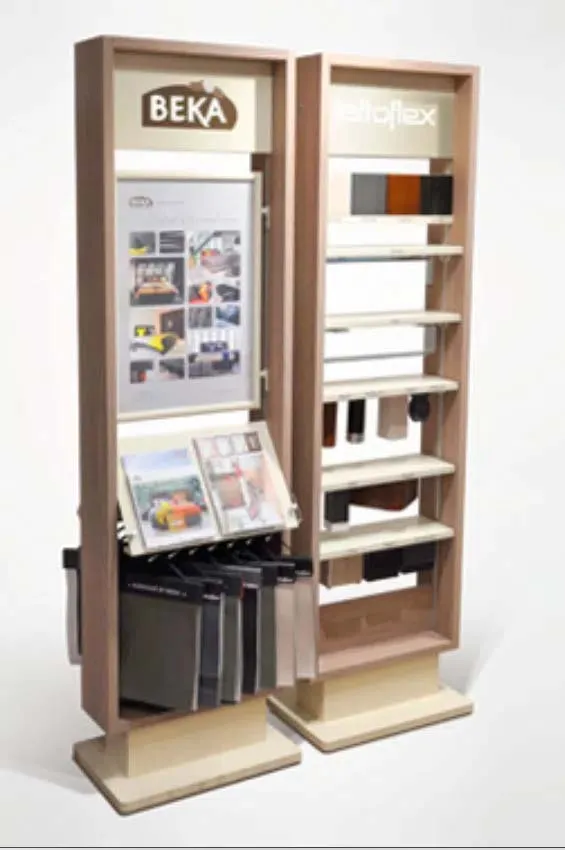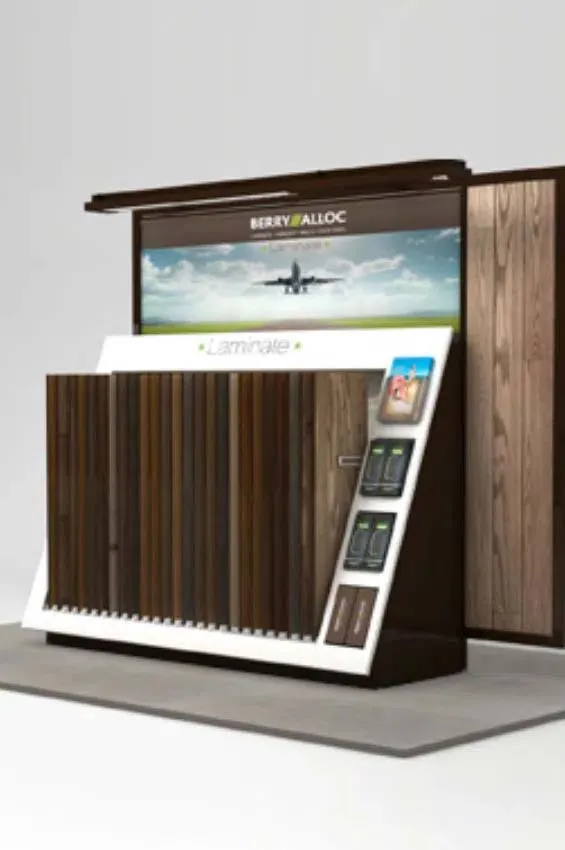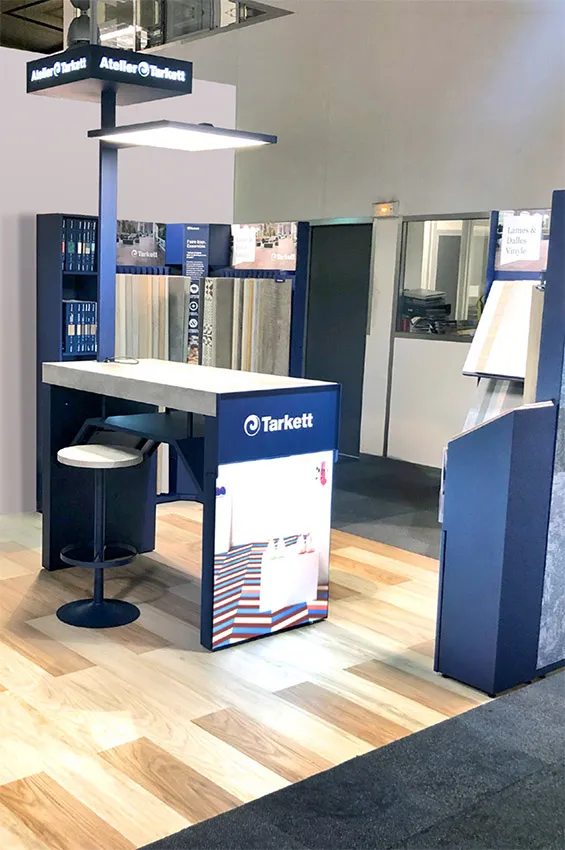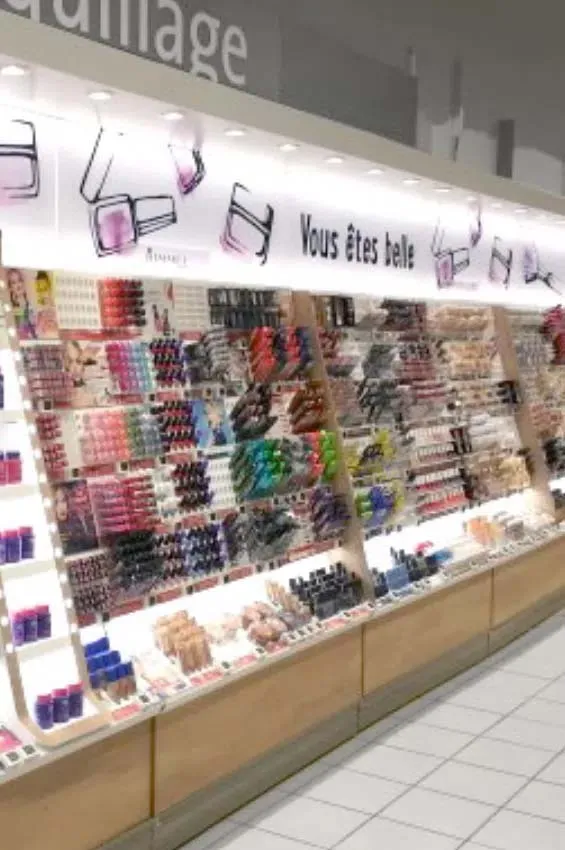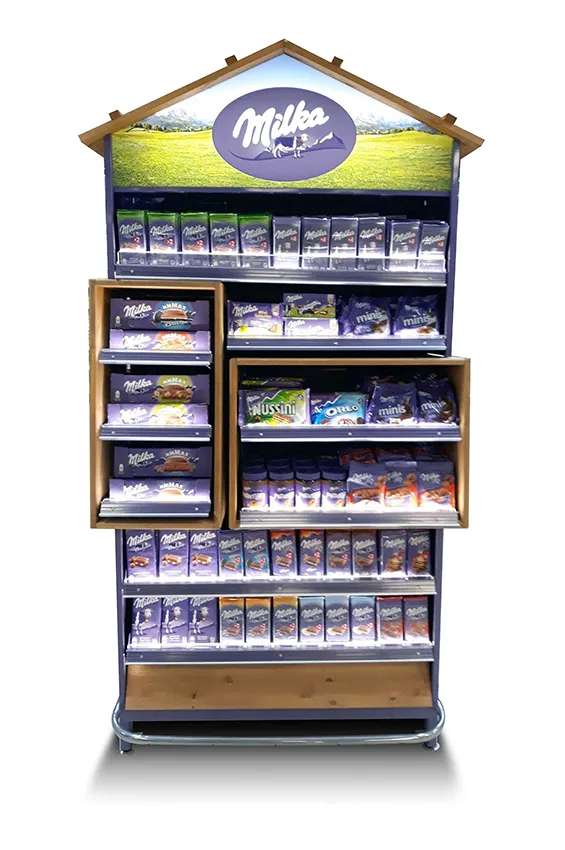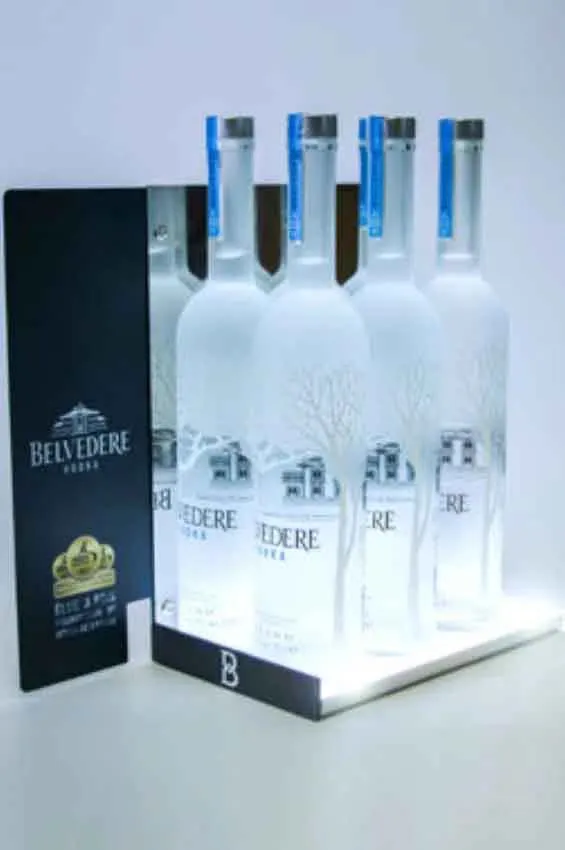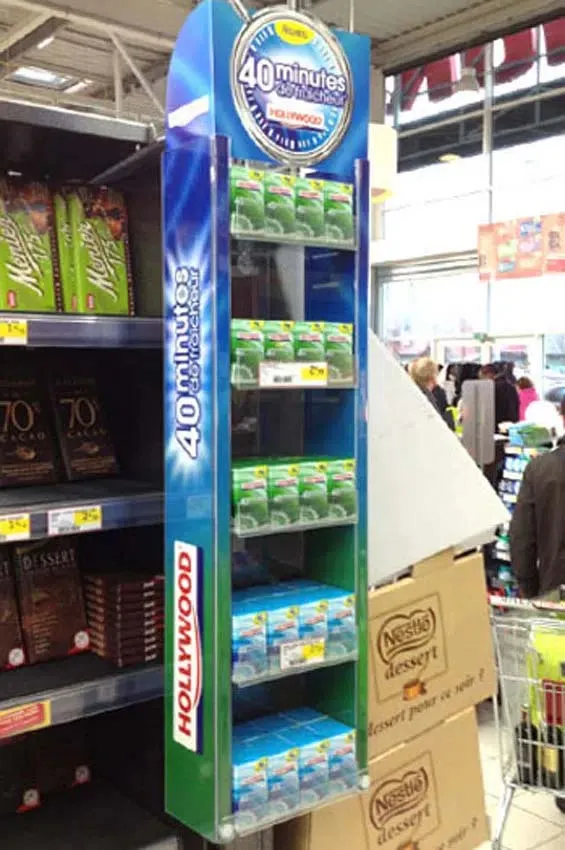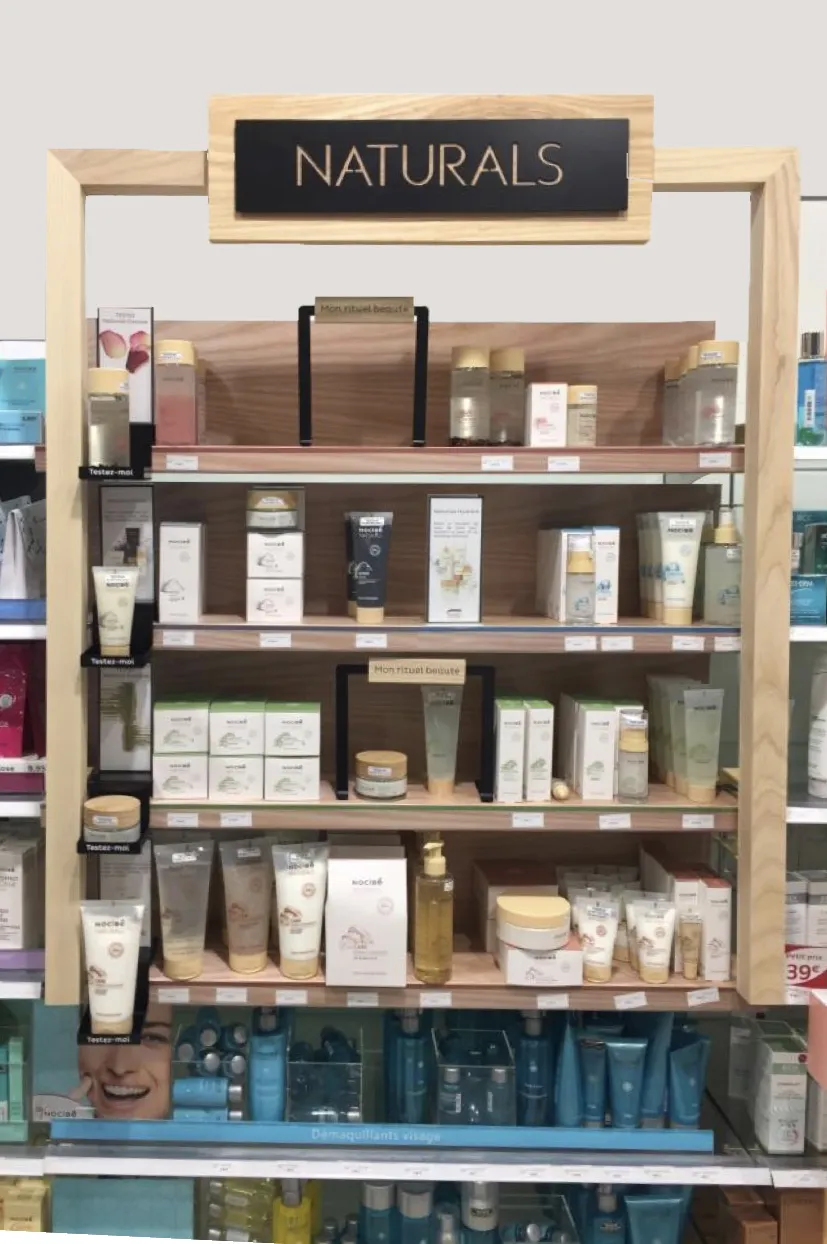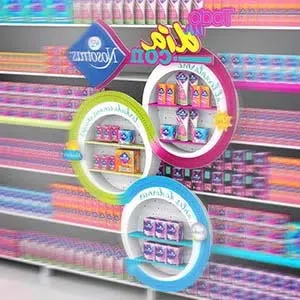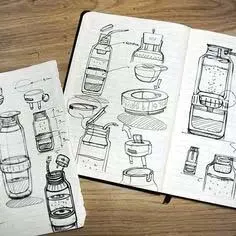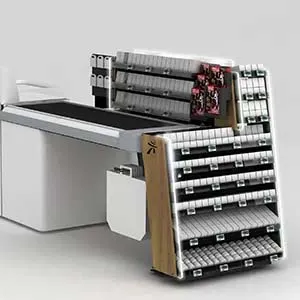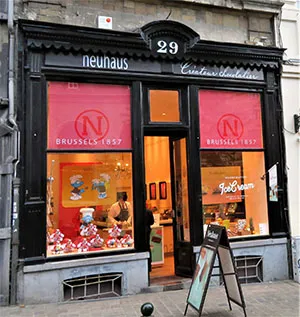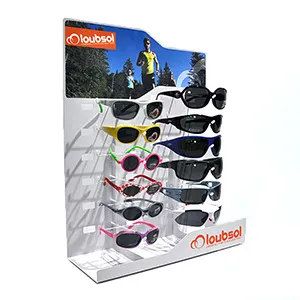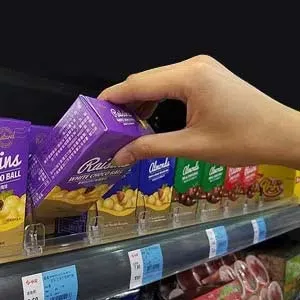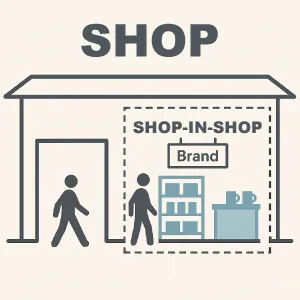Which is the best point-of-purchase marketing solution for you? Types of permanent display explained
In the field of point-of-purchase (POP) marketing, much effort goes into making the most effective display materials. Because a strong display solution can help in competing for retail support, it's important to understand the different types, and how they make an impact.
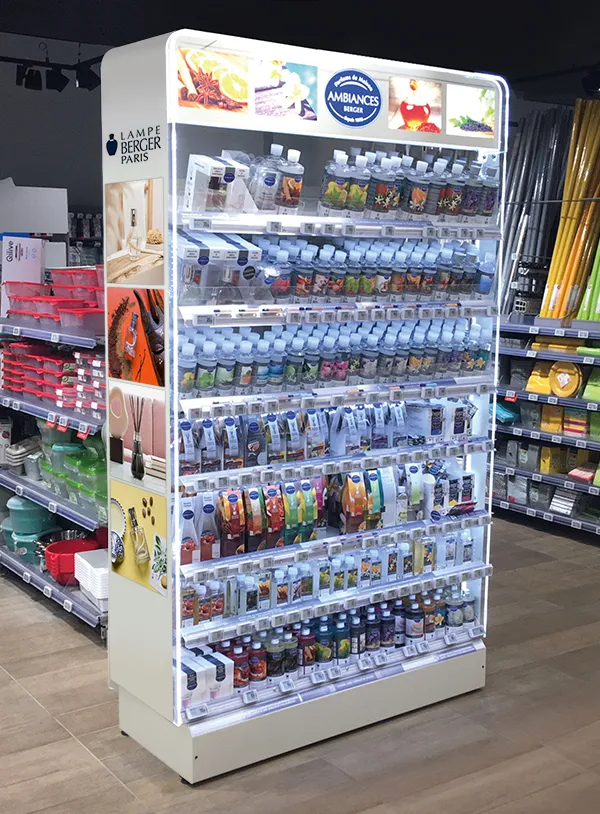
2000 words
#marketing #POP #merchandising #FMCG
June 2023 — bh
So, what's the key to effective displays? It's all about customization! Many solutions can fit any situation. To work well, display doesn't need to be big and loud. Every material can engage with shoppers, as long as it strikes the right chord.
In this article, we'll first talk about what a POP display is, and its role in marketing. Then, we'll look at examples from the two categories of permanent solutions: free-standing displays and retail fixtures.
Pilotes specializes in the design of commercial furniture, display and merchandising solutions. We offer 100% customized point-of-purchase materials tailored to the in-store projects of brand and retail. Because we care about the climate and environment, we analyze the lifecycle of each project to avoid, reduce, and offset its impact 🌍🌿
Do you have a project planned? Contact us and let’s bring your vision to life together!
Point-of-purchase display, definition and meaning
 A POP display is a material stores use to show off products to shoppers. When making retail plans,
brands focus on how their display looks. It's usually the first thing store visitors see from a brand.
A POP display is a material stores use to show off products to shoppers. When making retail plans,
brands focus on how their display looks. It's usually the first thing store visitors see from a brand.
Every brand selling in physical stores uses POP displays. Marketers who specialize in merchandising are the ones who design and organize displaying. They do it when launching new products, getting visitors interested in existing ones, or during promotions. They make sure the displays work well and can handle the wear and tear of the store.
Most times, people learn about products through ads outside the store, like on TV, radio, social media, or in magazines. But once they're in the store, POP displays take over. They bring back memories and pull shoppers toward the products, whether consciously or not.
Free-standing display — explication and examples
A free-standing display unit is any stand-alone presentation in a store that grabs your attention. These displays put an offer right in the middle of your shopping journey, either in the aisles or all around the store, and preferably in the most busy zones. The materials are customized to fit the brand and the products they present.
1. Floor-standing display unit (FSDU)
Stocked with merchandise, floorstand boosts how noticeable and reachable the items are when it matters most. With attention-grabbing shapes, materials, vivid graphics, and colors, these stands look appealing, keeping everything tidy on shelves or hooks. They not only make the brand more recognizable but also invite people to check out what's on display.
Related article > Why a floor-display should be part of any marketing mix ?2. Isle unit
Isle units are stand-alone floor displays you can approach from any side. You'll find them anywhere in the store where there's open space. They are powerful displays since they break through traffic-flow patterns and keep shoppers engaged.
3. Display case or showcase
A showcase or a display case is a special kind of stand-alone display with glass or see-through plastic all around it. It shields valuable items from being touched by customers. To touch or buy something from the showcase, buyers usually need to ask store staff for help. These displays are great for high-end items that are at risk of being stolen because they provide extra security.
4. Countertop display unit
A countertop display is a stand-alone presentation, usually with smaller items. Placed on a shop counter or table, it encourages shoppers to buy on the spot. It's a great way to showcase products without taking up much space.
Related article > Countertop display: the most direct advertisement5. Glorifier
Brands can create unique glorifiers to display their products in a different way. These glorifiers serve ornamental purposes, providing a special visual experience that's both attractive and informative. They're the perfect way to highlight a product with endless options for shape, design, and material. Since glorifiers are meant to showcase qualities and features, buyers can find the item on its home shelf.

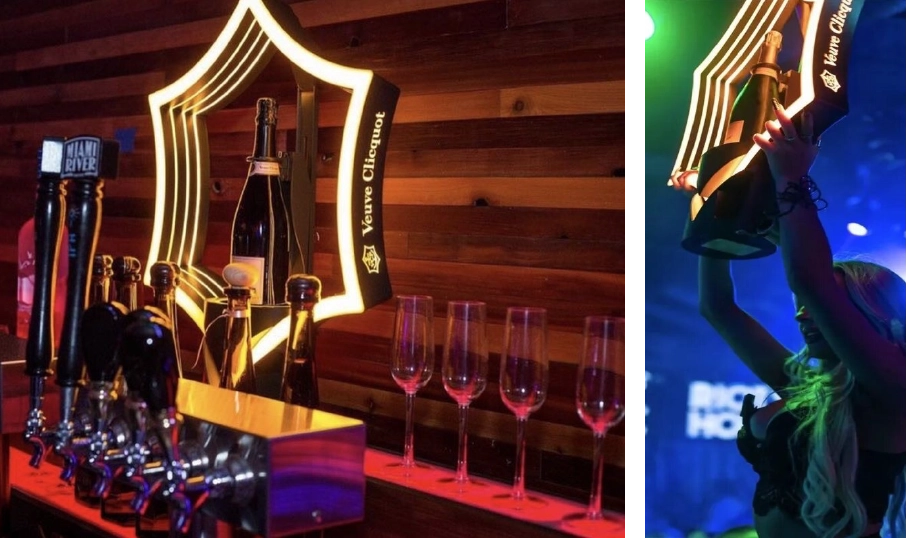
A VIP bottle presenter or a parade tool is a type of POP material used to create excitement in nightclubs, restaurants, bars and other on-trade venues. With its design and visual appeal this remarkable material strengthens the desirability of the drink offering. It invites customers to fully immerse themselves in a Very Very VIP serving ritual. A parade tool is always mobile, allowing waiters to theatrically present the featured bottle at the customer's table. Spectacle and content to be shared on social media guaranteed!
Related article > Spirits & drinks: use a bottle glorifier to stand out in hospitality venues6. Store window display
Retailers set up animations in their windows to attract potential customers and draw them into the store. These window displays represent the store and can be the deciding factor in whether someone decides to enter. They create visually appealing designs that convey a brand, an offer, or the essence of the store.
Related article > Retail Window Display: Tips, Ideas & Inspiration7. Gondola display unit
Gondolas are larger, free-standing shelving units with one to four sides, placed in open areas of a store. Designed to hold items for as long as needed, they often have adjustable shelves to display different types of packaging. While they're usually made of metal, brands can promote themselves through graphics, scenery, and attractive color schemes.
8. Informational POP display
This category includes all POP solutions to guide and inform visitors about product features, benefits, technical details, usage, and more. These displays don't always relate to a product directly. In practice, the distinction isn't always straightforward ...
9. Digital POP display
Digital strategies, along with technological devices in digital displays, offer opportunities for traditional retailing and brands to guide choices, provide advice, maximize limited physical space, and more ...
10. Shop-in-Shop (SIS)
In larger stores, shop-in-shops or corners are used when a brand dedicates a larger area to sell a variety of products. Modular design is essential for optimal use of diverse spaces. Different modules with various functions are used to customize the assigned space, immersing customers in the brand's universe, regardless of the shop.
Retail fixtures — explanation and examples
One key to a successful store is how the permanent fixtures catch the attention of visitors. Every little thing is carefully planned to create a tempting and welcoming atmosphere. With a nice setting and an easy-to-follow layout, customers are likely to spend more time in the store and might come back more often. Let's look at some common solutions brands and stores use to catch their eye.
11. Retail shelving
Shelving units, also known as racks, are where stores display and stock their products. They help keep the store organized in aisles, and guide how people move around. They look neat and tidy, and they make it easy to see and find what's on offer.
Sometimes, the shelves need to match the product. This is a chance for brands and stores to be creative with designs, colors, lights, graphics, and how everything is set up. Instead of using the usual shelves, brands can create custom ones for a more compelling and memorable shopping experience.
Related article > The most effective shelf management solutions explained12. Endcap display
Endcap or shelf end display units sit at the ends of aisles. Because visitors walk by them while moving from one aisle to another, they're in a perfect spot to catch lots of attention. Even passerby strolling through the main walkways, the fast track, can spot products without venturing down the aisles.
Endcap or shelf end display: the eye-catcher in any store13. Checkout display
Customers don't like waiting at the checkout, so stores focus on a smooth scenario in the queue area – it's the busiest zone, perfect for selling small, affordable items that rarely make it to your shopping list. Checkout or front-end displays are low shelved units that need specific design and arrangement to fit a variety of products.
Related article > Front-end displays drive up-selling in the checkout area14. On-shelf display unit
An on-shelf, on-fixture or shelf-on-shelf display is any POP solution you see on a store shelf. Trays or frames are used along the shelf edge to break up the visual monotony of the shelving. The physical nature of these in-store solutions allows for a lot of creativity.
15. Shelf stopper
A shelf stopper, or shelf talker, is a material that sticks out perpendicular to the shelves in an aisle. Like a wobbler, it grabs attention and improves the brand's image. These are powerful in-store marketing tools to make a product stand out on the shelf.
Related article > 5 tips to stand out on retail shelving with a shelf talker16. Sidekick display unit
Also known as a power wing, side cap, or end cap side display, these are small POP solutions made to efficiently use space. They're great for cross-merchandising, or suggesting items that go well together. Customers don't have to change aisles to get something that goes with what they already picked.
17. Branded bay
While a brand block is a dedicated area on retail shelving reserved for a brand’s larger assortment, branded bay activities take things a step further in terms of display. A branded bay can range in size — from part of a shelving unit to one or several full bays — and is always visually distinctive. Frames, fronts, fins, cards, strips, and signage add layout, color, imagery, and messaging specifically crafted to reflect the brand’s identity.
Related article > From shelf space to brand space: the branded bay explainedDate: July 2020 — bh
Appealing display can make the difference between attracting a prospect or losing a customer to a competitor. Here at Pilotes, we believe in the power of premium display. Our 25 years of experience allows you to enhance the appearance of your choice instore. Reach out today to set up a free consultation. We'll find the best solution for your brand.


